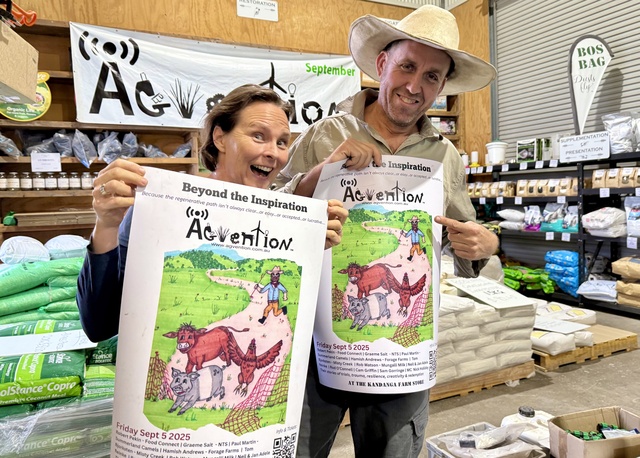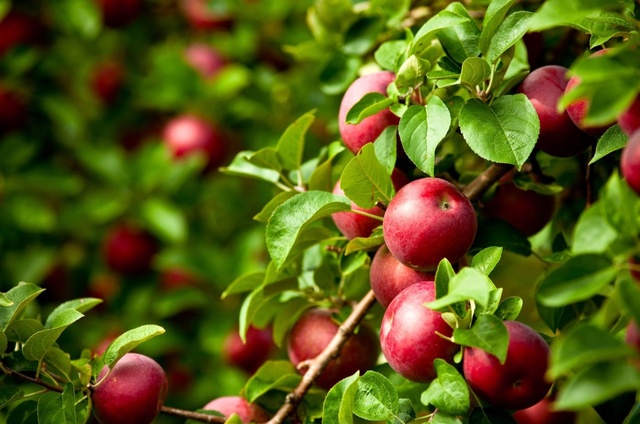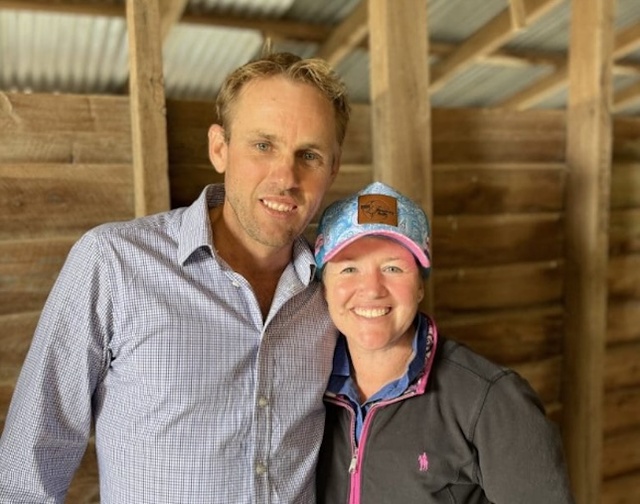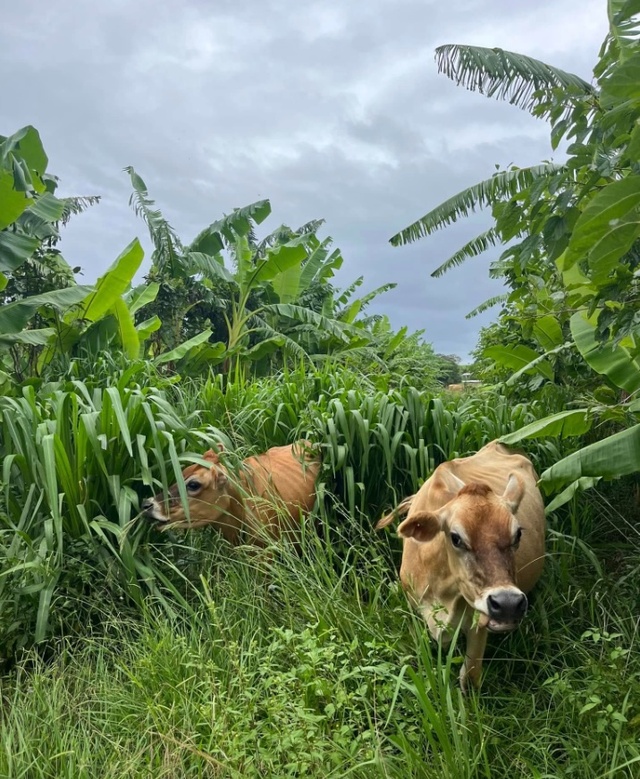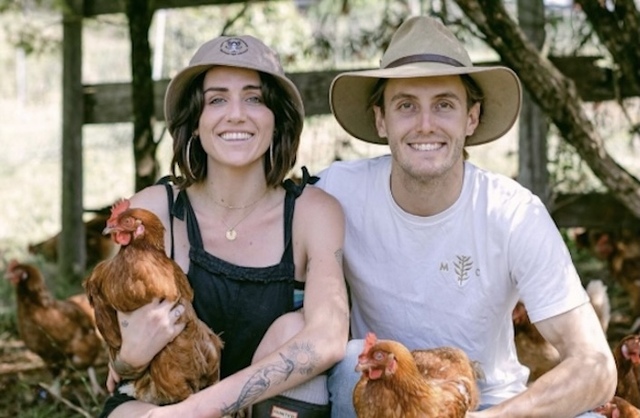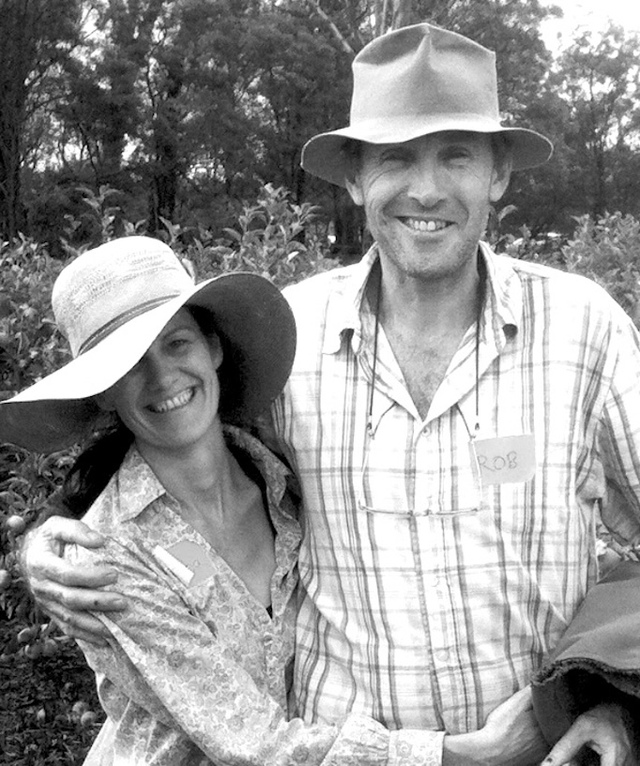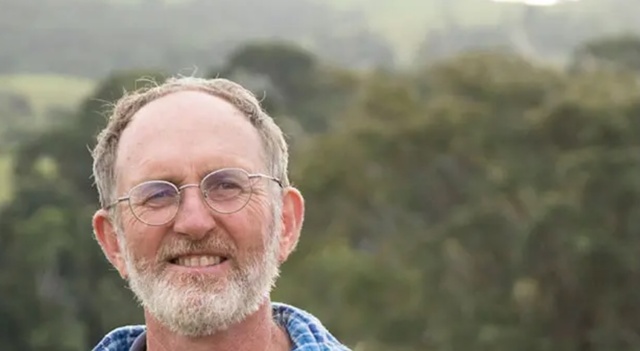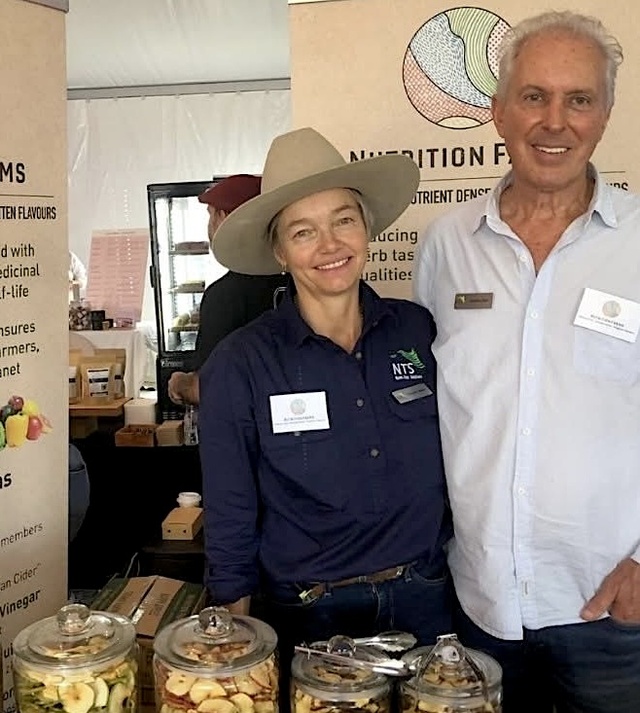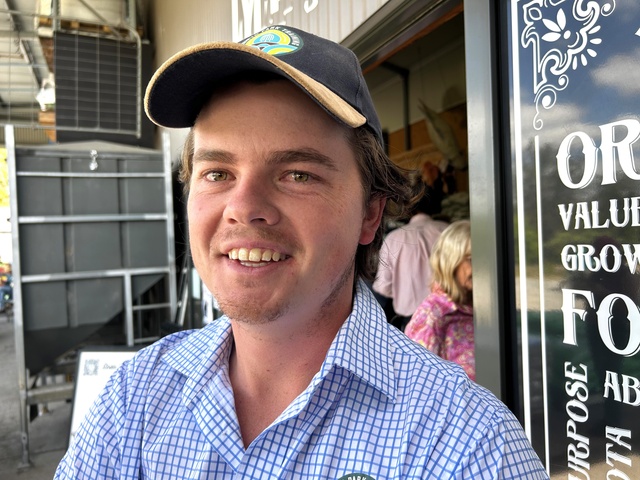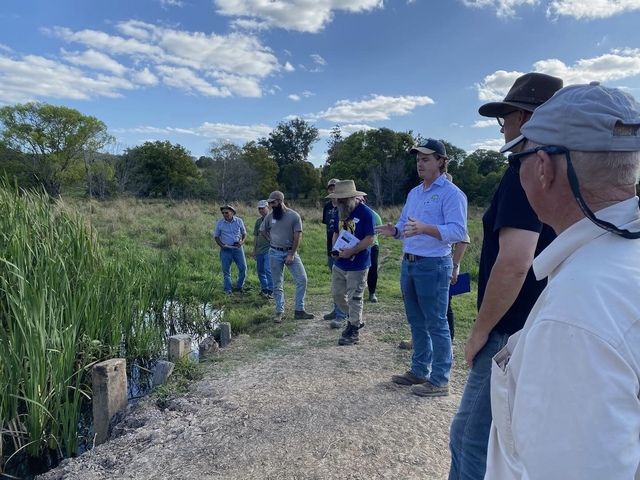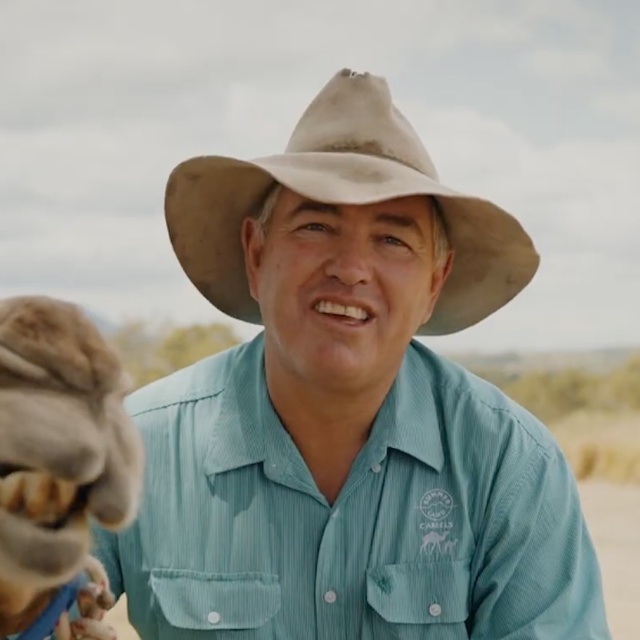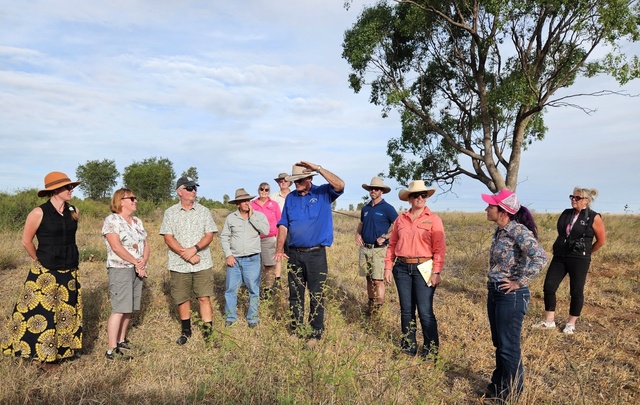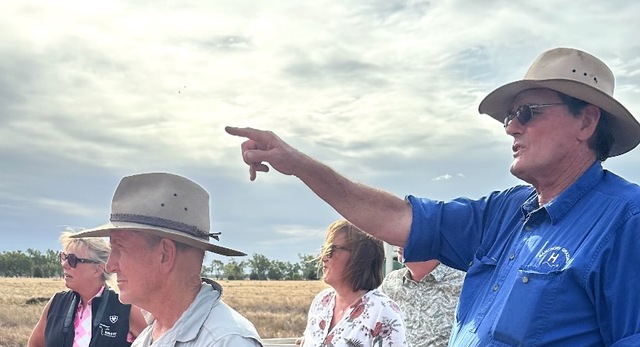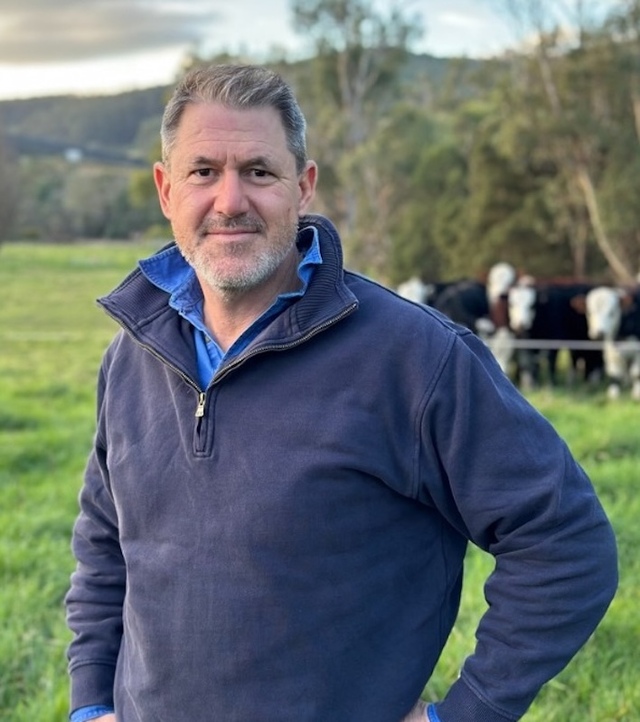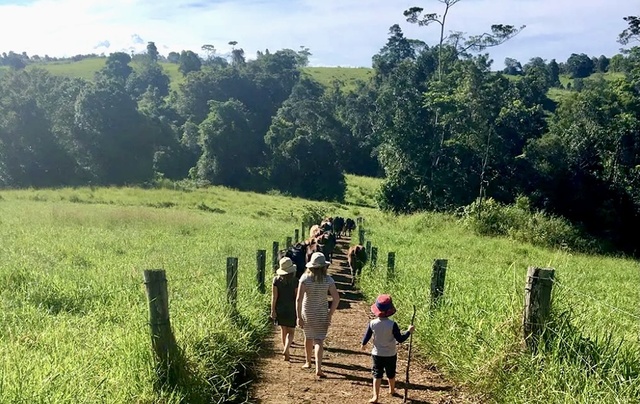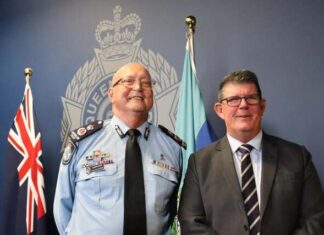Agvention is coming … and the line-up of speakers is one of the best in the event’s six-year history.
Going Beyond The Inspiration will be the format for the event, with Agvention billed as Australia’s first and only regenerative agriculture field day.
To be held on Friday, September 5, at Kandanga Farm Store, Agvention looks at the need for sustainable practices to prevent irreversible damage to the Earth’s ecosystems and ensure the well-being of current and future generations.
This involves overcoming the impacts of climate change, biodiversity loss, deforestation, and soil degradation.
The loss of these natural attributes reduces the ability of ecosystems to provide vital services such as clean air and water.
With global agriculture having to contend with soil degradation, climate disruption, and ecological breakdown, there is a need for a deeper re-evaluation of how food is produced
“It’s going to be amazing,” Kandanga Farm Store’s Amber Scott said. “The line-up of speakers this year all have slightly different takes.
“This reflects what regen farming’s all about. There is no silver bullet, no recipe, no rule book or instruction manual.
“Anyone on the regen path is still figuring it out as they go along … they do not have all of the answers.
“Yet some who have been on the path for a while bring some really great insights to share, how to avoid mistakes and recognise opportunities.
“People are looking forward to the event.”
Among the speakers are Robert Pekin and Emma-Kate Rose from the Food Connect Shed in suburban Brisbane, who will be sharing how to overcome adversity and create something that will be far reaching in the impact it has on the lives of people.
Rob Watson of Mungalli Milk on the Atherton Tableland is to bring his experience of how integrity helps build a brand that consumers will trust.
The success of the award-winning biodynamic milk comes from creating a product that has become extremely popular, even against heavily discounted items.
Graeme Sait and Claudia Sibley of Nutri-Tech Solutions have an apple orchard at Stanthorpe on the Southern Downs. They will talk from experience, not just about soil health and nutrition levels in food but about the reality that growing produce is just the start.
Philip Hughes, from the Lachlan Hughes Foundation on the Western Downs, will speak on the human component – how to overcome massive setbacks and then help others on their farming journey.
The foundation, established in 2019 in lasting memory of Lachlan Hughes, was to fund one person annually to attend training courses in regenerative agriculture.
This year the foundation will see 30 participants attend from throughout Australia.
Philip will speak about the family’s journey, with focus on avoiding burn-out – maintaining a balance in lifestyle as well as soil.
There is no better recognition of the Lachlan Hughes Foundation’s value than in Neil and Jan-Adele Reinke, who were recipients of the Tree of Life Award two years ago to provide a further 12 months of regen farming experience.
At Agvention, Neil and Jan-Adele will be introducing ways of finding the silver lining with silvopasture – an agroforestry practice that integrates trees, forages (pasture), and livestock grazing on the same land.
Neil has 40 years of experience with forestry and with Jan-Adele runs a regenerative beef operation focusing on landscape function, silvopasture and soil health.
The list of speakers includes Hamish Andrews from Forage Farms at Kybong, talking about collaborative expansion – how to build output without buying extra land.
Tom Bjorksten from New South Wales will focus on how to succeed with small scale farming, while Paul Martin of Summer Land Camels at the Scenic Rim is looking at alternative funding avenues.
Sam Gorringe, from a Tasmanian dairy farming family, is to focus on diversifying income passively.
Meanwhile Rod O’Connell, who grew up on a sheep and cattle property in central western Queensland, has lived on a small Scenic Rim farm for the past 10 years and will look at subtle energies as ways to heal from recent social and economic disruptions.
PERSONAL JOURNEYS
Agvention has continued to attract interest from across Australia since its inception in 2019.
It has highlighted Kandanga as a hub for regen farming and something of a landmark for the region.
Throughout the year Kandanga Farm Store hosts workshops and get-togethers for the different seasons.
“The workshops are to share ideas on the seasons and how to be pro-active in an organic farming situation as well as regen,” Amber Scott said.
“This is a growing pocket of awareness and there are people who are wanting to do something – be part of the network.
“The fact about regenerative farming is that one size does not fit all.
“Those on the journey all have different stories.
“Yet it’s about the failures as much as the successes – the markets and the weather for instance, can have a big effect and it’s a matter of how you cope.”
Agvention was conceived after Tim Scott, at the time running the Australasian division for a multinational rural tech business, was seeing less innovation on the Australian agricultural field day circuit.
At the same time, the international field days he was attending were noticeably more interesting.
Tim and Amber realised Agvention had to be different, so they decided on hosting a range of speakers and topics that are designed to assist personal regenerative journeys.
Agvention was revived in 2022 after a break during the Covid pandemic.
LIVELY LINE-UP
As part of the local food revolution theme, guest speakers at Agvention 2025 include Robert Pekin and Emma-Kate Rose from Food Connect Shed in suburban Brisbane.
Getting Real While Giving A Damn is the theme of Robert’s talk and he is expected to cover a broad spectrum.
“It’s about trying to keep things real, and always being there for the farmer,” he said.
And Robert would know – he’s a former Victorian dairy farmer who’s suffered from deregulation in the milk industry.
He lost the multi-generational family farm in the Otway Ranges in the late 1990s.
This led to severe introspection and depression, but Robert resolved that he needed to be a part of the solution.
Having been busted he realised what the problem was … it was on the other side of the farm gate.
“We needed to be that side of the fence,” he said.
As a result he founded Food Connect, a social enterprise to connect farmers and city consumers.
The Salisbury warehouse is Australia’s first community-owned local food hub and gathers produce from about 200 farmers within 500km of Brisbane.
The goal is to get local, seasonal, ecologically-grown food direct from a farmer into people’s homes as quickly as possible.
At Agvention, Robert will be advising on how to get real with finances, but also reminding people of the need not to get over-excited with regenerative methods and their possibilities.
At the same time he will encourage conservative-minded farmers who think regen sounds too good to be true.
“Let’s get down to look at the numbers and have viability without burning ourselves out.
“Obviously mental health is a big part of it … but basically it is a matter of would you value your fresh produce more if you knew the farmer who grew it?”
Food Connect Foundation director Emma-Kate Rose said one Food Connect box may hold 20 different foods grown by 20 different farmers.
They are distributed mainly by means of a so-called city-cousin network.
“In practice, it’s a distribution system, so instead of delivering to your home or to your door … these city cousins act as local pick-up points in local neighbourhoods.”
More than 500 “careholders” invested in an equity crowd-funding campaign that enabled Food Connect to buy the $2million warehouse.
“We don’t owe any money to a bank,” Emma-Kate said.
“We’ve got 513 people who are on board with us 100 percent.
“They really get what we’re trying to do in terms of our broader vision for the food system here in Australia.”
FARMING FROM A DIFFERENT PERSPECTIVE
Did you know that cows have best friends? Research has shown that cows form close bonds with certain herd mates.
Rob Watson of Mungalli Creek Dairy in Far North Queensland said it was fun seeing them in their little gangs as they get moved towards the dairy each day.
Biodynamic farming is like organic farming – but more. It’s a way of growing food that treats the farm as a living, breathing ecosystem, not just a production site.
“It’s not about growing more. It’s about growing better food that nourishes people and the planet.
“At Mungalli Creek Dairy, we’re a family-run farm nestled in the heart of the lush Atherton Tablelands, surrounded by World Heritage-listed rainforest.
“We farm organically and biodynamically, which means we work with nature – not against it.
“We never use synthetic fertilisers or chemicals. Instead, our cows graze on rich, chemical-free pastures, and we rely on natural processes to build healthy soil and strong ecosystems.
“It’s better for the land, our animals, and the people who enjoy our dairy.”
At Mungalli Creek, the Watson family see the farm as a living organism, where everything is connected.
Integrity Can Be Profitable is the theme of Robert’s talk. It’s the recipe for the success of his award-winning biodynamic milk.
In a retail environment where supermarket shoppers expect to pay as little as a few dollars for a litre of milk, the Mungalli Creek brand commands up to four times that amount and has become popular with consumers.
It is about delivering a quality product that consumers can rely on. In short, it means responsibility for the decisions you make.
SOIL HEALTH BUILDS WEALTH
Graeme Sait co-founded Nutri-Tech Solutions (NTS) and has written hundreds of published articles and the popular book Nutrition Rules!
He also owns Nutrition Farm which comprises two distinctly different properties dedicated to the production of nutrient-dense, chemical-free food with forgotten flavours and enhanced medicinal qualities.
One of these farms is based in a sub tropical zone on the Sunshine Coast while the other is in the coldest region of Queensland, near Stanthorpe.
This allows NTS to demonstrate Nutrition Farming principles in both tropical and temperate regions.
What Graeme has found is the profound importance of soil microbes, and the undeniable role of nutrition in crop resilience, productivity, and profitability.
He advocates becoming a proactive soil manager, rather than a reactive problem solver – about growing nutrient-dense food, improving the bottom line, and farming with integrity.
From experience at the Stanthorpe orchard he has learnt that all apples are not “apples” so to speak.
There are the challenges of supermarkets expecting perfect apples but if they don’t meet those expectations they find a use because the taste is ideal.
Graeme will talk about all the journey of working out how to upscale apples, by creating slices, juices and other lines.
He is looking to bring a different perspective – that of the farmer as well as a supplier.
FOR THE LOVE OF TREES
Serious health challenges have not been enough to stop Neil and Jan-Adele Reinke from finding a way to get real results in regenerative agriculture.
The Reinkes run a regenerative beef operation in Central Queensland with 1000 cattle, focusing on landscape function, silvopasture and soil health.
Apart from back injuries and a few other things that have gone wrong, they run 1000 cattle.
Having a background with Queensland Forestry, Neil has developed silvopasture trial plots on their property – an agroforestry practice that integrates trees, forages (pasture), and livestock grazing on the same land.
This system aims to create a mutually beneficial environment where trees, forage, and animals can all thrive, enhancing productivity and sustainability.
By retaining partial tree cover, silvopastures create a more moderated environment that helps mitigate temperature extremes and optimise soil conditions.
This offers less stressful conditions for the animals as compared to the open pastures by improving feed and water intake, reproductive health, milk yields, fitness, and longevity.
Grazing controls understory vegetation and reduces the accumulation of fuel biomass, lowering the risk of forest fires.
Neil and Jan-Adele were presented with a Tree of Life by the Lachlan Hughes Foundation to continue with the program.
YOUNG FARMER’S PERSPECTIVE
Hamish Andrews of Forage Farms and Tarwyn Park Training at Kybong in the Mary Valley, will present a young person’s perspective on scaling up the family’s operations.
Hamish is the grandson of Natural Sequence Farming Methodology founder Peter Andrews and son of Tarwyn Park Training founder Stuart Andrews.
But the journey hasn’t necessarily been all roses for the Andrews family – dealing with industry and community opposition and red tape.
With a clear vision and conviction of their ability to create positive environmental and agricultural outcomes, Hamish is now driving opportunity for other farmers to collaborate and succeed.
At Forage Farms they have found that direct to consumer sales is a key way many small-scale producers improve their farm viability – by capturing the whole retail dollar.
However, the Andrews family is good at engagement and invests in education to keep up with demand. Instead of buying more land to expand they are harnessing the power of collaboration.
Hamish is working with other producers who don’t want their own ‘brand’ but are willing and able to learn how to produce to the very high standards of Forage Farms. This leads to produce marketed together under the Forage brand.
To do so, it requires communication, transparency, shared values and trust.
FROM LITTLE FARMS …
Tom and Nicole Bjorksten of Misty Creek Agroforestry at Booyong on the New South Wales north coast will discuss ways of creating a thriving food forest even on a small holding.
Tom grew up on a cattle farm in the Central West of the state but decided to pursue a career in the city.
The agriculture he had been exposed to was disconnected to both the land and people, so they purchased a 28-acre property and started their exploration into agroforestry, stacked enterprises and holistic management.
Floods, cancelled markets and being small in a commodity-driven market are all challenges that Tom and Nicole have had to overcome.
Yet Tom did not have visions of growth for growth’s sake. Instead the focus is on profitability, personal fulfillment and ever-building ecological health, diversity and resilience.
Tom and Nicole decided to embrace syntropic farming, which imitates the way a natural forest works.
Developed in Brazil, this regenerative agricultural cropping method mimics the structure and function of natural forests to create productive and sustainable food systems.
It has proven a game-changer for Tom and Nicole. They have used syntropic agroforestry to transform their farm from a bare open paddock into a thriving forest that supports many species, as well as their chickens that range and forage freely amongst the trees in the forest.
Regular pruning produces a forestry floor environment where you have a lot of decaying wood enabling fungi to spread.
As such, a forest doesn’t need fertiliser or irrigation because it’s a self-sustaining system, and the chickens are thriving.
In turn, the chickens are giving back to the land in the way of manure.
The couple also grow certified organic brussels sprouts, onions, fennel and flowers, along with the tree-range chicken meat and eggs.
Their conversation will also highlight the function of Nguni cattle for regenerative grazing, the challenges of direct-to-consumer model, regulatory barriers for small scale farmers, and the potential for regenerative agriculture to revitalise rural communities.
THINKING OUT OF THE BOX
Turning a boutique passion into a viable business requires creativity, passion and resilience. Yet that’s what Paul Martin has done with Summer Land Camels.
Growing up in Springsure in central Queensland, on 40,000 acres of cattle country and grain cropping wheat, Paul didn’t have any experience with dairy farming beyond milking the house cow.
After studying at Gatton, Paul headed west once more and embarked on a regenerative agriculture journey that ultimately led him to camels.
Wanting to add more diversity back into the grazing livestock landscape, camels offered a unique solution because they eat different plants, and their urine and manure has different impacts on the environment. Paul started to think more about what he could do with camels. At the time, dairy allergies – particularly eczema and psoriasis – were increasing in the community.
The answer was a camel dairy, as camel milk is considered a safe alternative for those suffering from dairy allergies.
Summer Land dairy in the Scenic Rim is now 800 acres and 450 camels. Predominantly a tourism operation, it is a matter of working to grow public interest in camel milk products – not just food and drinks such as milk, cheese, gelato, chocolate but also skincare products.
Agvention is being run without funding or support, and the speakers offer their services freely as a means of keeping the cost down.
The event last year was sold out, with attendees from South-East Asia, Western Australia, Western Queensland, Victoria and Tasmania as well as the Mary Valley and surrounds.
The wealth of knowledge at Kandanga Farm Store and the willingness to share that, as well as discuss other ideas, will certainly be something of immense value.
To be flexible and open to change is increasingly needed in an ever-changing world, together with an understanding of nature itself.
AGVENTION 2025 PROGRAM
07:00 – 07:45 Gates open – registration and breakfast (available for additional cost).
07:45 – 07:55 Welcome by MC, Nick Holiday.
08:00 – 8:45 Robert Pekin – Getting Real with Giving a Damn. Putting yourself ahead of the hype.
08:50 – 9:35 Graeme Sait and Claudia Sibley – from Theory to Practice – growing it is just the start.
09:40 – 10:25 Tom Bjorksten – From family black sheep to small scale success story.
10:30 – 10:55 – Morning Tea Break
11:00 – 11:30 – Hamish Andrews – Collaborative Expansion.
11:35 – 12:05 – Paul Martin – Alternative Funding Avenues.
12:10 – 12:40- Sam Gorringe – Diversifying Income Passively.
12:45 – 13:25 Lunch – Buffet Lunch of local organic produce.
13:30 – 14:15 Neil Reinke – Finding the Silver Lining with Silvopasture.
14:20 – 15:05 Rod O’Connell – Subtle Energies.
15:10 – 15:55 Rob Watson – Mungalli Milk Case Study – Integrity Can Be Profitable.
15:55 -16:05 Leg stretch.
16:05 – 16:50 Last questions, Lachlan Hughes Foundation draw and wrap-up.
For more details: agvention.com.au/

